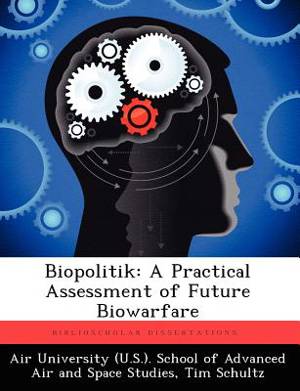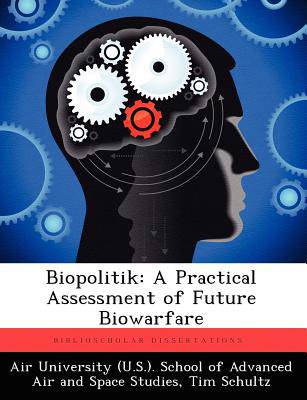
- Retrait gratuit dans votre magasin Club
- 7.000.000 titres dans notre catalogue
- Payer en toute sécurité
- Toujours un magasin près de chez vous
- Retrait gratuit dans votre magasin Club
- 7.000.000 titres dans notre catalogue
- Payer en toute sécurité
- Toujours un magasin près de chez vous
78,95 €
+ 157 points
Description
The long history of warfare reveals man's ingenuity for developing methods to triumph over other men. Nature possesses a similar ability to challenge human interlopers, and infectious disease joins warfare as a primary determinant of human affairs. Enlisting pathogens as weapons of war serves the pragmatic interest of gaining advantage over the enemy, and the specter of biowarfare endures in the modern era. Fundamental breakthroughs such as genetic engineering and the decoding of the human genetic blueprint usher in new possibilities for offensive weapons and the means to defend against them. America must now devise a practical approach to ensure its security in a modern world plagued by common access to potent bioweapons. This thesis investigates how the genomics revolution, or the transformation of modern bioscience, affects America's national security. The proliferation of advanced biotechnology equips state and non-state actors with the asymmetric means to challenge American interests, and in a world governed only by the security dilemma America must adopt a sensible posture towards biowarfare. Borrowing from the pragmatic doctrine of realpolitik, this thesis creates the term biopolitik to describe a realist approach to the promise and peril of biotechnology. Biopolitik demands an aggressive, resourceful biodefense to thwart the intent of modern adversaries, and this defense leverages new technology to detect, mitigate, and attribute biological attacks. Biopolitik also addresses the shortcomings of nuclear or conventional reprisal, and it examines the efficacy of including advanced bioweapons in America's strategic arsenal. This thesis also draws from the airpower experience to examine the nature of v asymmetric weapons and assess how America exploits technology to serve strategic objectives. The evolution of precision airpower portends the development of sophisticated bioweapons, and airpower's integration of offensive and defensive capabilities to
pragmatic
pragmatic
Spécifications
Parties prenantes
- Auteur(s) :
- Editeur:
Contenu
- Nombre de pages :
- 98
- Langue:
- Anglais
Caractéristiques
- EAN:
- 9781249448952
- Date de parution :
- 20-09-12
- Format:
- Livre broché
- Format numérique:
- Trade paperback (VS)
- Dimensions :
- 189 mm x 246 mm
- Poids :
- 190 g







